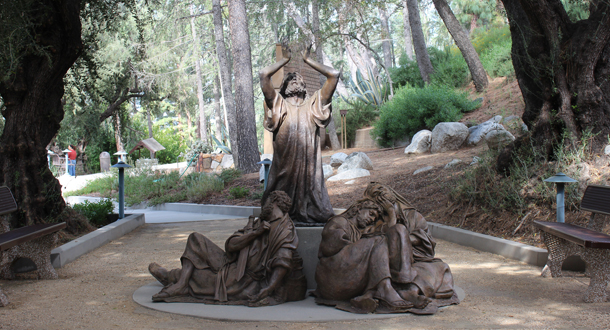
The Commemoration of All the Faithful Departed (All Souls)
Scripture:
Wisdom 3:1-9
Romans 6:3-9
John 6:37-40
Reflection:
How consoling and encouraging it is to hear a family member or good friend say, “I wish you the best,” or “I am rooting for you.” When we know our loved ones desire the highest good for us, we are encouraged to do our best, and we rest in the love they give . And so it is in our relationship with God. God desires our highest good. At the most vulnerable times in our lives, and especially at the moment of our death, we can rest in God’s love, knowing the “Souls of the just are in the hand of God.,” as we hear in today’s first reading from the Book of Wisdom. And in today’s Gospel reading from John, Jesus confirms that God desires to share eternal life with us.
Today’s reading from Wisdom gives us two vivid descriptions of our souls, using the analogy of fire as a purifier. Fire is a symbol of the presence of God.
“As gold in the furnace, he proved them,
and as sacrificial offerings he took them to himself.” (Wisdom 3:6)
The author of Wisdom shows how suffering can purify our souls of any selfishness and immaturity that would keep us from living in communion with God and others. Once a metal like gold is in its melted down state, the dross in the metal rises to the top and is then removed from the metal before it cools. And like our souls, what is left is pure gold that does not destruct.
“In the time of their visitation they shall shine,
and shall dart about as sparks through stubble.” (Wisdom 3:7)
Using the analogy of purifying fire again, the author of Wisdom likens our souls to “sparks through stubble.” After the harvest of grain or corn, the farmers burn off the stems that are left, and the ashes become fertilizer for the next year. The farmers light the fire in the day and go back after dark to check the fire. Some embers might still be burning; and when the wind blows, those embers become bright sparks in the darkness, darting up from the burnt stubble in the ground. So too our souls, going towards God.
In the early days of Judaism, suffering was often seen as a sign of God’s displeasure; and material success and health were signs of God’s favor. The author of Wisdom sees our relationship with God differently: like our best friends, God is with us in joy and suffering. And if we trust God, God brings about the highest good in our lives in this world and in the next.
Patty Gillis is a retired Pastoral Minister. She served on the Board of Directors at St. Paul of the Cross Passionist Retreat and Conference Center in Detroit. She is currently a member of the Laudato Si Vision Fulfillment Team and the Passionist Solidarity Network.
